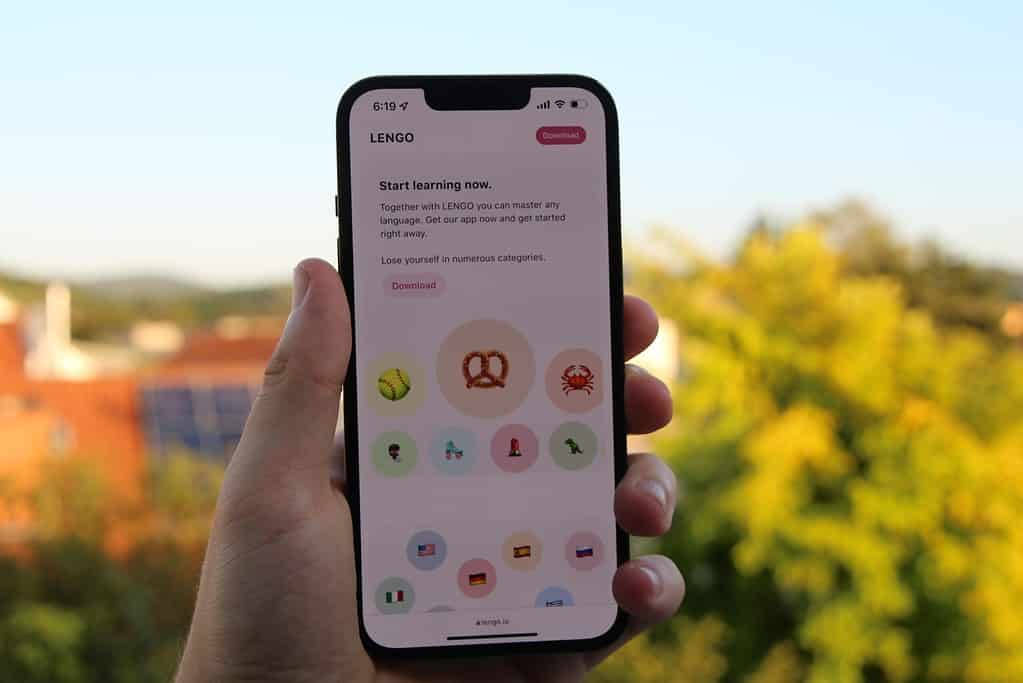Social media in France is a vibrant scene where language meets culture in unexpected ways. As an English speaker keen on getting the hang of French the fun and authentic way, you’ll soon discover that platforms like Facebook, Instagram, and Twitter are more than just global communication tools—they’re windows into local slang, humor, and cultural nuances. And with a platform like swaplang, which connects you directly with native speakers through private video exchanges, you can practice your conversational skills in real time while exploring the digital French landscape.
Popular French Social Media Platforms
French social media may look a lot like its global counterparts but dive a bit deeper and you’ll see that France has its own unique pulse. Major international players such as Facebook, Instagram, and Twitter maintain a strong presence in the French digital landscape. However, localized trends also give rise to certain platforms gaining more traction in France compared to other parts of the world. For instance, research from Social Media Stats France | Statcounter Global Stats shows that user behavior and platform preference can vary significantly based on factors like age, region, and even the type of content being shared.
On these platforms, you’ll notice that French users often combine standard language with local expressions and a bit of playful banter. This blend of formal language rules and informal, sometimes rebellious, slang gives you a real-time insight into how French is used in everyday digital conversations. Observing posts, reading comments, and even trolling the occasional meme can be an excellent resource for your language learning journey, offering you context beyond classroom exercises.
Common French Slang in Social Media
When scrolling through French timelines, you might bump into a host of slang expressions that will make you wonder if you’re reading a secret code. French slang is rich, dynamic, and can be as playful as it is perplexing. For instance, you might encounter words like “wesh” to greet friends, or “bg” as a compliment. One especially intriguing aspect of French slang is verlan—a playful inversion of syllables in words. As explained on Understanding French Social Media Slang – Talkpal, verlan not only reflects the creativity of youth culture in France but also serves as a linguistic passport into a more informal style of communication. For those curious about the mechanics of verlan, details and examples are readily available on Wikipedia’s Verlan page.
This blending of standard French and innovative slang is particularly evident on Twitter threads, Instagram stories, and even in online forums. To get comfortable with these shifts in language, consider keeping a personal glossary of new words and phrases that you encounter online. This practical approach not only expands your vocabulary but also deepens your understanding of the cultural context behind each expression. If you’re looking to explore more about this facet of the language, check out insights on speaking like a local for additional tips, examples, and context.
Cultural Nuances on French Platforms
Understanding French culture is key to fully grasping the language, and social media is an excellent way to experience it firsthand. French platforms often mirror the country’s cultural values—whether it’s the nuanced use of formality in addressing others, the rich tradition of witty humor, or the emphasis on eloquence even in casual online exchanges. You might notice that while English speakers tend to keep things simple, French conversations, even online, reveal a subtle dance between formal and informal language. A quick comment might switch between “tu” and “vous” depending on the context, hinting at an underlying respect for social hierarchy and personal boundaries.
Furthermore, the playful exchange of memes, gifs, and short video clips on these platforms often carries layers of cultural references. For example, a popular meme might reference a classic French film or literary work, requiring you to not only know the language but also understand the cultural backdrop. This interplay of language and tradition provides both a challenge and a delightful insight for learners trying to get to grips with conversational French. Paying attention to this cultural sophistication can enrich your understanding, making your own online interactions more nuanced and engaging.

Tips to Engage Authentically
Engaging authentically on French social media is all about balancing curiosity with respect. Immerse yourself by observing not only the language but also the social norms that guide interactions. Start by joining conversations on topics you’re passionate about—it could be French cinema, current events, or even culinary trends. Engage with posts by leaving thoughtful comments, and don’t be afraid to ask native speakers about the nuances of a particular expression or cultural reference. Consistent practice is the hallmark of fluency.
One practical tip is to reflect on the tone and context of posts before you contribute. French users often appreciate wit and subtlety, so even a humorous comment is best when it respects the audience’s intelligence and cultural norms. Remember, language learning is as much about understanding context as it is about vocabulary. Over time, as you start integrating more authentic expressions into your repertoire, you might find that your interactions feel less like practice and more like genuine communication.
If you’re ready to take your conversational skills to the next level, consider a personalized language exchange. With flexible scheduling and secure, ad-free private rooms, swaplang offers a direct way to converse with native speakers and quickly incorporate real-life social media language into your everyday practice. Embrace the challenges, enjoy the playful colloquialisms, and watch as your confidence grows. Welcome to the vibrant world of French digital culture—where every post is a lesson, and every conversation is a step toward fluency.

















